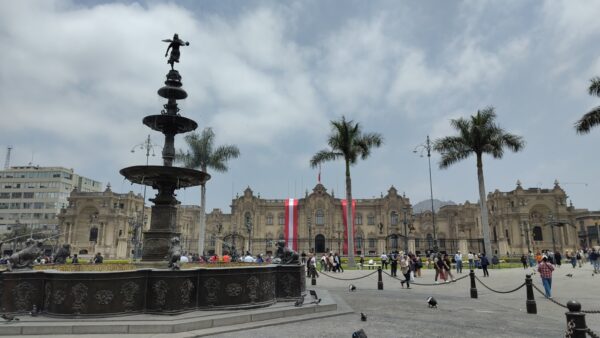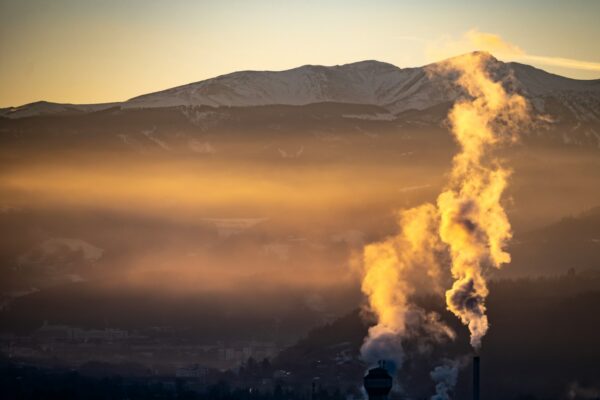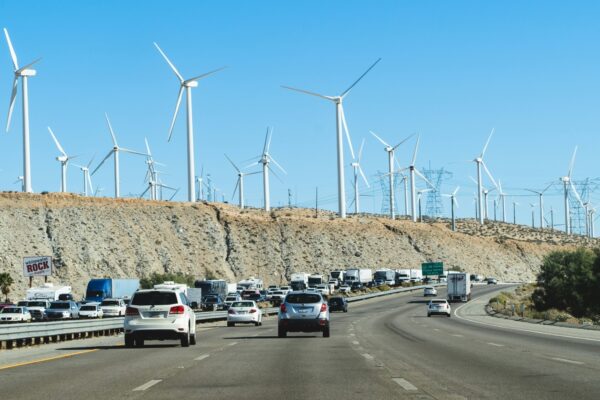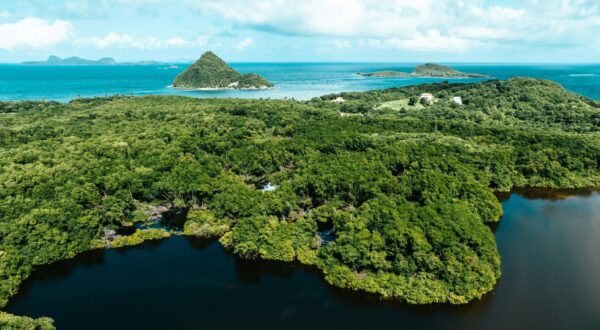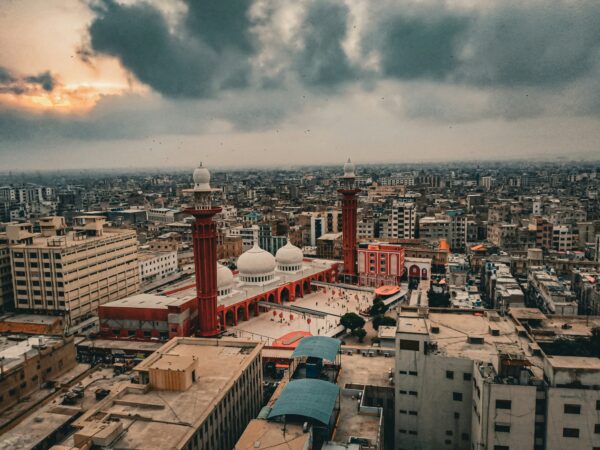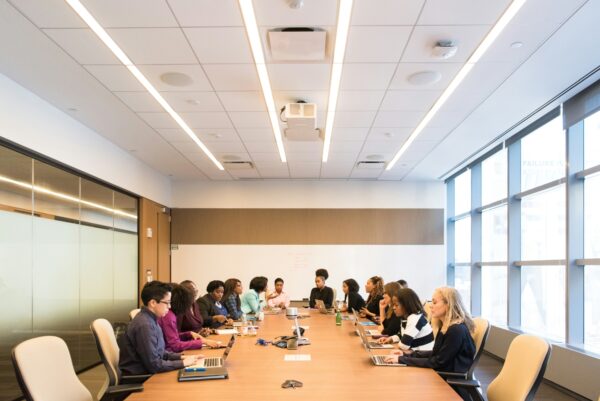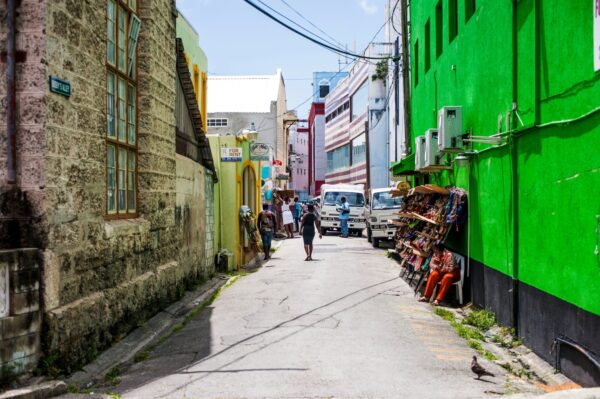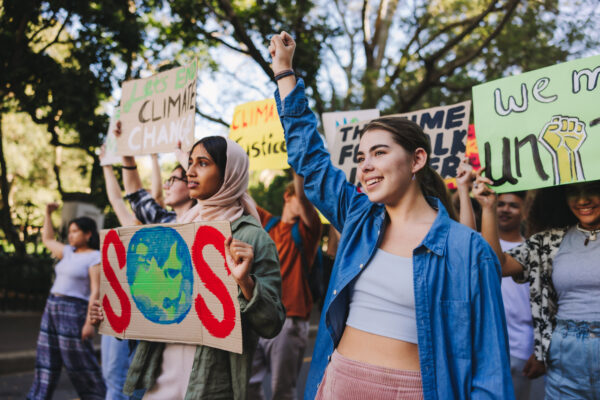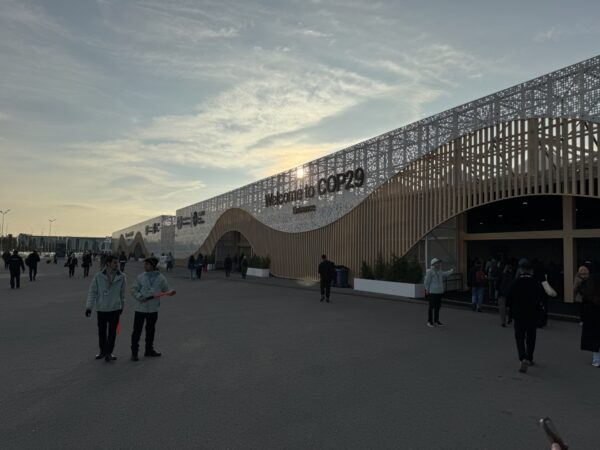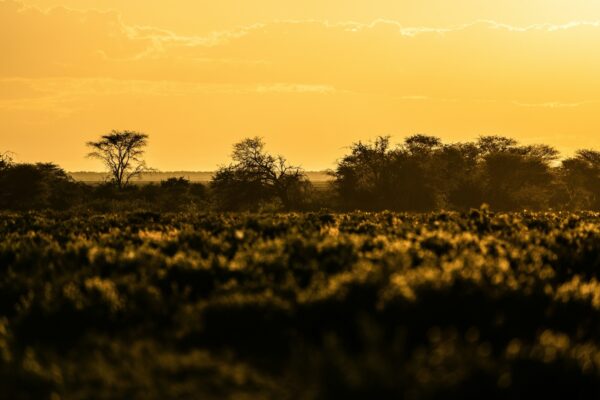How Africa can be better represented in the next cycle of IPCC reports and why it matters
Winnie Khaemba, Patricia Nying’uro and Joyce Kimutai
Despite its climate vulnerabilities, Africa was highly underrepresented in the last IPCC cycle. As governments start planning the IPCC’s seventh assessment cycle, more funding and support for African climate science – and scientists – could help address this and result in more equitable climate policies.
Share
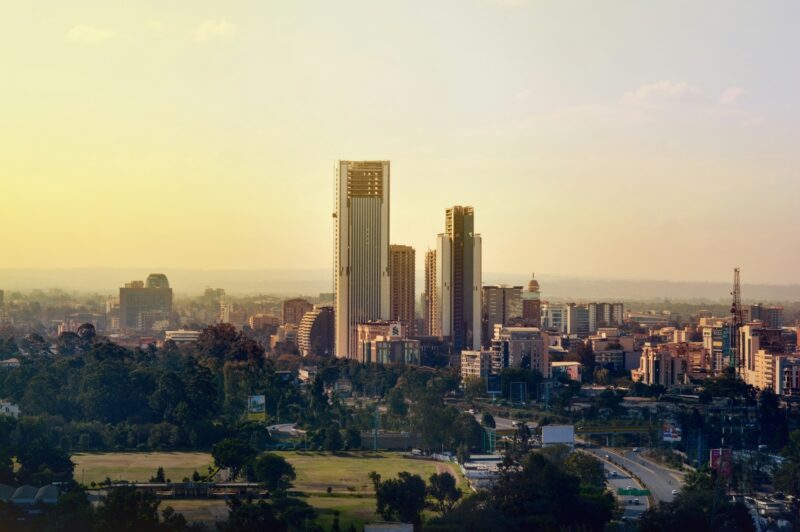
Governments will gather in Bulgaria over July and August to agree on the schedule for the IPCC’s seventh assessment cycle, shaping its work for the next five to seven years. Yet despite its climate vulnerabilities, Africa was highly underrepresented in the last cycle. More funding and support for African climate science – and scientists – could help address this and result in more equitable climate policies.
In March 2024, the African Group of Negotiators Expert Support (AGNES), the Kenya Meteorological Department, University of Nairobi and other partners convened a meeting of African focal points and authors for the Intergovernmental Panel on Climate Change (IPCC). The aim of the meeting was to discuss their input into the upcoming seventh assessment report cycle, and how to improve the representation of African science in the reports and some of the discussions from this forum are highlighted in this article.
Africa, and African scientists, are notoriously underrepresented in IPCC reports. IPCC reports, you have to remember, do not create science but review existing literature. In Africa, there is less literature to draw from. Meteorological data and historical records are harder to access even where available. Climate science in other geographies like Europe and North America are better funded and better resourced, and it’s easier for scientists in these geographies to engage in the IPCC process, in which all authors undertake their work on a voluntary basis. This leads to underrepresentation of African science in the reports.
Then there are the authors, who are responsible for drafting the reports themselves. During the previous AR6 cycle only 11% of the authors were from Africa, in previous cycles the numbers were even much lower. The percentage of women amongst this is even lower –- only one third of IPCC authors in the AR6 cycle were women.
At the same time Africa is disproportionately affected by climate change. We know that Africa is especially vulnerable to drought, floods, heat and sea level rise among others. Africa is also home to the highest number of Least Developed Countries in the world, and is less resilient to the impacts of climate change due to physical and socioeconomic factors. All of this means that Africa’s experience of climate change is often under-represented or misrepresented in literature
For the AR7 cycle, African countries need to not only ensure an increased number of authors but also make sure that more research by African researchers is included in the assessment.
We need increased funding for climate research on climate impact drivers in Africa; adaptation and loss and damage; climate justice and equity; indigenous and local knowledge; culture and social norms and a better understanding of the hazards, risks, impacts and vulnerabilities of people and ecosystems to climate change.
What’s coming up in AR7?
We already know what reports will be produced in the IPCC’s seventh assessment cycle (AR7). First up will be the special report on cities. For African countries, the cities report must have a focus on cities in developing countries: including informal settlements in cities, increasing urbanisation, urban planning & governance structures in cities, health and air quality, food and water security, migration and displacement, among other issues. African cities are rapidly growing and with current infrastructure unable to accommodate the increase, a lot of pressure is exerted on existing systems.
Another output will be a review and update of the 1994 adaptation guidelines including indicators and metrics for adaptation. Adaptation is critical for African countries, which are already experiencing incessant climate impacts. For example, Eastern Africa just emerged from a three year drought from 2020 to 2023, to then be inundated with flooding in 2023 and 2024. The guideline review was agreed on as a compromise for the proposal by African countries to have a special report on adaptation and loss and damage.
The main issues the guidelines could focus on include: progressive outlook on adaptation metrics; qualitative measurement of adaptation; indicators of transformative adaptation; adaptation limits; and loss and damage.
The AR7 will also produce three reports from each working group, a Methodology Report on Short-lived Climate Forcers, an expert meeting and Methodology Report on Carbon Dioxide Removal Technologies, Carbon Capture Utilization and Storage, and a Synthesis Report.
The timing of the release of these reports makes a difference. We just concluded the first global stocktake cycle – the five-yearly reflection on progress against the goals of the Paris Agreement. The AR6 reports were a key input for that reflection. The outcomes of the cycle showed clearly that adaptation could not be adequately assessed. It’s crucial that the second global stocktake has this scientific basis, especially in amplifying Africa’s specific needs for adaptation and loss and damage.
What we can do
According to the IPCC, Africa is especially vulnerable to droughts, floods, heat and sea level rise among others yet physical science research, adaptation, vulnerability and impacts remains inadequate and thus under-represented or misrepresented in literature. An immediate issue is support for documenting and collecting climate data. This in some cases requires instrumentation and technical training for people. A higher availability of climate data will help understanding of climate change drivers, impacts, risks and other climate issues in Africa to generate robust knowledge for evidence-informed decision-making.
Increased funding is needed for research on climate impact drivers in Africa; adaptation and loss and damage; climate justice and equity; indigenous and local knowledge; culture and social norms and a better understanding of the hazards, risks, impacts and vulnerabilities of people and ecosystems to climate change.
To engage in this next cycle, African governments will need to support their scientists’ participation in the IPCC’s Working Groups so as to contribute to the work – particularly with funding, but also with technical and other support to ensure that they are able to meaningfully contribute to the process.
There is a need to engage emerging and early career researchers in the generation of scientific research that will inform decision making on climate change issues on the continent as the bulk of Africa’s population is young.
Increased awareness of the scientific process of the IPCC and its findings, with use for decision-making is also important in getting stakeholders engaged in climate science processes. Policymakers are meant to be the primary consumers of the IPCC. It is important that policymakers in Africa are made aware of these products and how they can use them for decision making and planning, as well as for the implementation of climate strategies. They are vital to informing climate negotiations at the UNFCCC which determine actions which countries take to combat climate change.
It is also important that other stakeholders, especially the research community, academia, civil society and local organisations as well as communities understand these findings and their implications on their work and livelihoods.
The IPCC’s reports are a key input for much of the policymaking around climate. It’s therefore absolutely critical to address the under and misrepresentation of Africa and African science. This will both improve our scientific understanding of the consequences of climate change, and what solutions are available to us. It also goes a long way to address issues around equity in evidence-based policy making.


